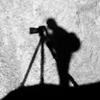Processing Time
Jul 17, 2013 09:31:13 #
I experimented with some nighttime photography last night. I read up on settings and techniques, and went for it.
One of the suggestions was to shoot everything in RAW, which I did. What I noticed was that however long I had the shutter open, it took the camera that long to process after the shot. A 30 exposure took the camera an additional 30 seconds to process, and so on. It made for a long, very chilly experience here in the mountains.
My question is this: would it take the camera the same amount of processing time if I had shot in JPEG? Just curious. Didn't think of it until I got back, so I thought I'd check with the experts.
One of the suggestions was to shoot everything in RAW, which I did. What I noticed was that however long I had the shutter open, it took the camera that long to process after the shot. A 30 exposure took the camera an additional 30 seconds to process, and so on. It made for a long, very chilly experience here in the mountains.
My question is this: would it take the camera the same amount of processing time if I had shot in JPEG? Just curious. Didn't think of it until I got back, so I thought I'd check with the experts.
Jul 17, 2013 09:34:00 #
You have your Long Exposure Noise Reduction turned on. Turn it off and your shutter will be available immediately after each shot.
Jul 17, 2013 10:04:58 #
MT Shooter wrote:
You have your Long Exposure Noise Reduction turned on. Turn it off and your shutter will be available immediately after each shot.
You are spot on. I did what you suggested and it worked. Thanks. But that leads to the next question: why do I need long exposure noise reduction if I'm going to turn it off for long exposures?
Jul 17, 2013 13:35:58 #
As far as processing time, it should take significantly less time for the camera to save the JPG format since they are approx 1/4 the file size. Probably won't save an equivalent time if the Long Exp Noise Reduction is on though as I suspect that is most of the processing time.
Jul 18, 2013 09:10:13 #
tschmath wrote:
I experimented with some nighttime photography las... (show quote)
The long exposure extra time is for the camera to make a similiar length exposure of "nothing" to allow internal electronics to correct for thermal noise that is inherent in the sensors during long exposures.
Try with long exposure correction on and off. Be your own judge if there is excess noise on your images.
If you shoot jpeg, you will have to take whatever initial decisions made by the manufacturer as your result. You can still edit but not in a lossless manner.
HTH
Jul 18, 2013 16:17:17 #
In addition, All cameras shoot in RAW and then convert to JPG if that is the mode you have chosen and yes it does add time to processing. If you shoot in RAW then only the RAW processing is involved as your conversion is done in the computer instead.
If you do the noise reduction in camera then the camera has to do it for each and every exposure. However, if you turn it off and then take 20 long exposures you can then put the lens cap back on the lens and take one final picture of black. You can then tell your software to use this black frame to reduce noise in all other selected photos at the same time. Of course not all software packages have this available to them but if your delving into night photography you really should get one.
If you do the noise reduction in camera then the camera has to do it for each and every exposure. However, if you turn it off and then take 20 long exposures you can then put the lens cap back on the lens and take one final picture of black. You can then tell your software to use this black frame to reduce noise in all other selected photos at the same time. Of course not all software packages have this available to them but if your delving into night photography you really should get one.
Jul 18, 2013 17:43:04 #
big-guy wrote:
In addition, All cameras shoot in RAW and then con... (show quote)
Do you have a short list of such software?
Thanks
Jul 18, 2013 18:14:28 #
StarTrails www.startrails.de or Starstax www.starstax.net come to mind. Both free and have a couple of limitations but you can work around that real easy.
Jul 18, 2013 18:30:01 #
When using long exposures, use low iso for reduced noise.
Also it's the same noise whether you correct it in RAW later or have the camera correct for it at the time you shoot. So leave it off. SS
Also it's the same noise whether you correct it in RAW later or have the camera correct for it at the time you shoot. So leave it off. SS
Jul 23, 2013 02:18:04 #
tschmath wrote:
You are spot on. I did what you suggested and it worked. Thanks. But that leads to the next question: why do I need long exposure noise reduction if I'm going to turn it off for long exposures?
Not all long exposures are going to be 30 seconds. You may take shots where it's 1 or 2 seconds and the doubled time before the next shot won't be objectionable. In those circumstances the long exposure noise reduction could be effective. You don't need to turn it off for all long exposures.
If you want to reply, then register here. Registration is free and your account is created instantly, so you can post right away.






